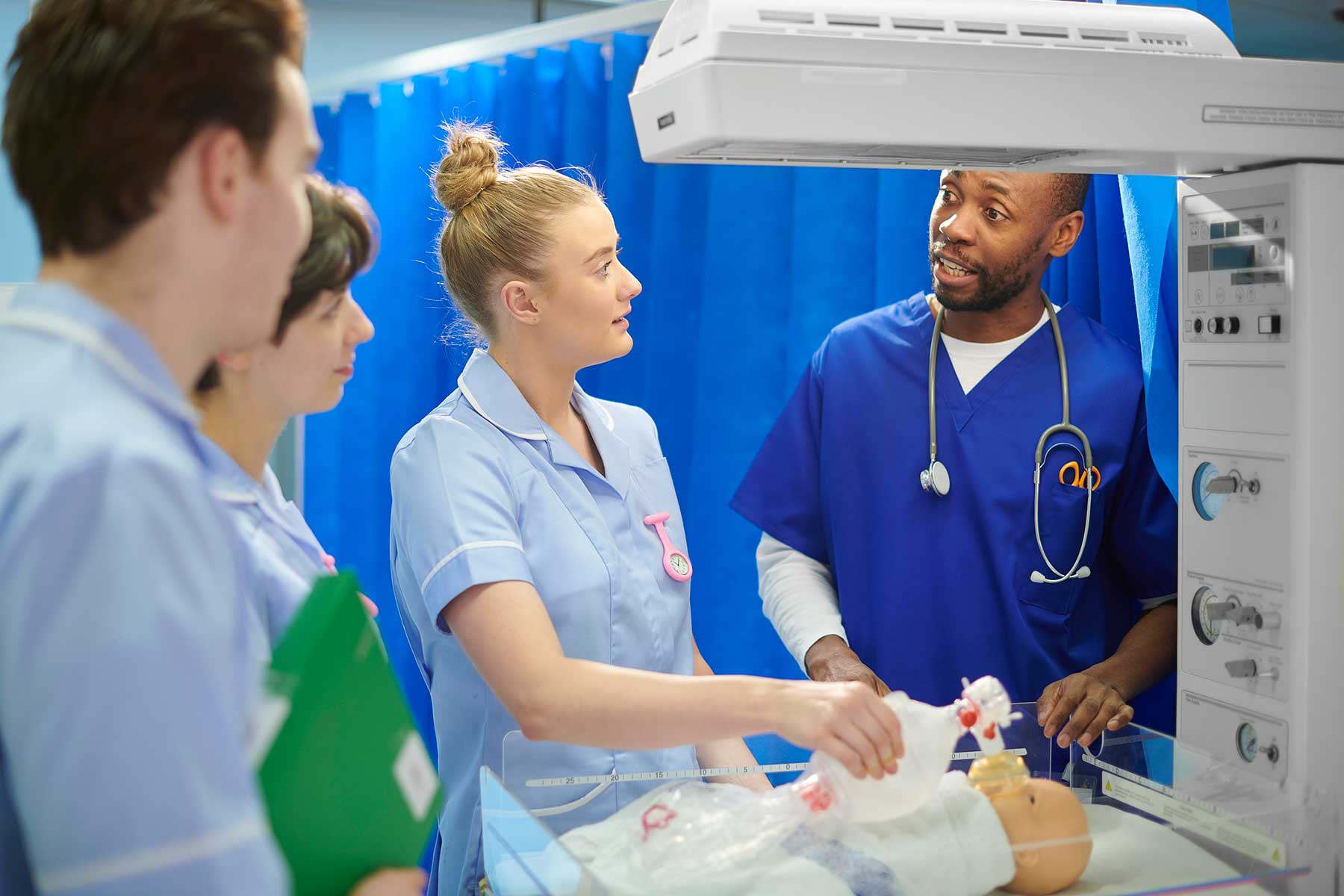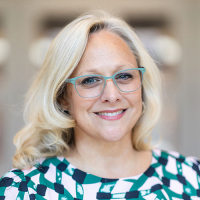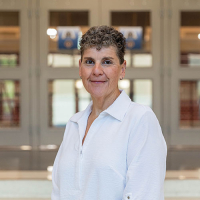
Doctor of Nurse Anesthesia Practice
-
duration
36 months
-
format
In-Seat
-
location
Charleston
Program Overview
Nurse anesthesia education has a long history in Charleston, West Virginia. In 1955, Charleston Memorial Hospital established a School of Anesthesia, and in 1969, Charleston General Hospital followed suit with their School of Nurse Anesthesia. Through hospital mergers (the two hospitals merged to form Charleston Area Medical Center), and many changes to the nurse anesthesia profession, CAMC was excited to join with the University of Charleston as their academic partner for their program beginning in Fall 2024.
CRNAs are advanced practice registered nurses (APRNs), licensed as independent practitioners who plan and deliver anesthesia, pain management, and related care to patients of all health complexities across the lifespan. As autonomous healthcare professionals, CRNAs collaborate with the patient and a variety of healthcare professionals in order to provide patient-centered high quality, holistic, evidence-based and cost-effective care.

CRNAs practice in the hospital, nonoperating room anesthetizing areas, ambulatory surgical centers, and office-based settings. They provide all types of anesthesia-related care for surgical, diagnostic, and therapeutic procedures. CRNAs provide anesthesia for all specialties including, but not limited to, general, obstetrics, trauma, cardiac, orthopedic, gastrointestinal, dental, and plastic surgeries. CRNAs administer anesthesia care to patients in urban, suburban, and rural locations in the US, and are often the sole anesthesia professionals delivering care to the military, rural, and medically underserved populations. CRNAs serve as leaders, clinicians, researchers, educators, mentors, advocates, and administrators.
The Doctor of Nurse Anesthesia Practice degree prepares students to become Certified Registered Nurse Anesthetists (CRNAs), licensed to administer anesthesia and other medications in surgical and other medical situations. The 36-month program runs through nine semesters (including summers) and involves extensive classroom and clinical training.
The DNAP program is accredited by the Council on Accreditation of Nurse Anesthesia Educational Programs (COA) and the Higher Learning Commission (HLC). The COA is accredited by the US Department of Education and the Council for Higher Education Accreditation (CHEA).

Accreditation
The University of Charleston Doctor of Nurse Anesthesia Practice program is accredited by:
The Council on Accreditation of Nurse Anesthesia Educational Programs (COA)
10275 W. Higgins Rd.
Suite 906
Rosemont, IL 60018-5603
Phone 224-275-9130
www.coacrna.org
Recognized by the USDE and CHEA
Licensure and Certification Requirements
Whereas accreditation applies to educational programs, licensure and certification applies to individuals. Our program prepares students for and makes them eligible to take the National Board of Certification and Recertification for Nurse Anesthetists (NBCRNA) National Certification Exam. Passing the NCE is required for employment as a CRNA and may also be required by each state to obtain licensure. Information regarding each state’s nurse practice act and regulatory requirements may be found here: https://www.aana.com/practice/practice-in-your-state/

Application Deadline: Applications for the cohort that will begin in the Fall 2025 semester must be received by Monday, December 16, 2024, for full consideration.
To apply to the program, students must:
- Complete the UC admissions application and submit the application fee.
- All of the following materials must be submitted via email to dnap@ucwv.edu.
- Have a BSN from an accredited institution with a minimum final GPA of 3.0. Applicants who have earned a BSN through an RN to BSN program will have their associates and bachelor degree GPAs combined for a cumulative GPA that must be 3.0 or higher. Applicants must provide copies of transcripts from all higher education institutions attended. Unofficial copies may be submitted for initial review, but official copies will be required for on-campus interviews.
- Have a current, active, unencumbered US registered nurse (RN) license. Applicants will be required to provide documentation of active licensure.
- Applicants must hold active certifications in ACLS, BLS, and PALS and provide proof of each.
- Submit a current CV in the required format
- Have three (3) professional references (one must be a current direct supervisor) complete the reference form and send to dnap@ucwv.edu. The form must be sent from the reference. Reference forms emailed by the applicant will not be accepted.
- Complete and submit the program experience form to dnap@ucwv.edu. Applicants must demonstrate a minimum of one year of ICU (intensive care unit) experience to qualify for admission.
- Applicants must be currently working in an intensive/critical care unit as defined by the COA in their Programmatic Accreditation FAQs with a minimum of one year total experience. Applicants will be provided an experience form to confirm appropriate experience.
Applications will be reviewed by the DNAP Admissions Committee. Applicants will be notified in February 2025 if they are being invited to campus for an in-person interview. Interviews will take place in March/April 2025. Applicants will be notified of status (admitted, wait listed, or denied) no later than May 1, 2025. Admitted students will have to submit a $1,000 enrollment deposit or will forfeit their admissions offer.
Additional Information
Applicants are strongly encouraged to actively shadow a CRNA to ensure their interest in the field. Shadowing hours are not required for the initial application review, but all applicants invited to interview will be required to submit confirmation of 8 shadowing hours (can be across multiple dates) prior to their interview date. Shadowing hours must be documented on this form.
What is required to apply for the DNAP program?
Students must have an earned Bachelor of Science in Nursing (BSN) with a minimum cumulative GPA of 3.0 and a minimum of one year of ICU or critical care experience. Applicants must be currently working in an ICU or critical care unit at the time of application. Please visit https://www.coacrna.org/faqs/ for additional details on what is considered appropriate experience.
Applicants must also be certified in Basic Life Support (BLS), Advanced Cardiac Life Support (ACLS), and Pediatric Advanced Life Support (PALS).
How are applications evaluated?
Initial applications are scored on a number of factors including undergraduate GPA, years of ICU experience, and GPA in certain undergraduate science courses. Applicants with the top 45-50 scores will be invited to campus for admissions interviews.
Candidates who are invited to interview will go through a round-robin interview process with University of Charleston faculty and staff. Questions will be wide-ranging to assess candidates’ potential for academic and clinical success.
The 30 top scoring candidates from the interview round will be offered admission to the program.
What can I do to improve my chances of being offered an interview?
Please understand that admission to the DNAP program is highly competitive. For the 2024 cohort we received 200 applications for 30 spots. The process is inherently comparative, so we can make no assurances that any of the following actions will move you into the interview round, but here are a few things you can do to earn additional points in the initial review process:
- Earn certifications beyond the ones required to apply. Examples include Critical Care Registered Nurse (CCRN), Trauma Nursing Core Course (TNCC), Cardiac Medicine Certification (CMC), Cardiac Surgery Certification (CSC). Applicants will have to provide documentation of successful completion of any certification.
- Applicants who have earned a Master of Science in Nursing will receive an additional point for their advanced degree.
- If the applicant has not already completed an introductory chemistry, physics, or microbiology course (undergraduate), doing so and earning a B or higher will earn additional points in the scoring system.
If I am not offered an interview or a spot in the program, can someone review my application and give me advice on how to improve it?
Unfortunately, no. Due to the high volume of applications received and the comparative nature of the selection process, we are unable to provide individual feedback to applicants who are not selected for admission in a given cycle.
If you have a question about the DNAP admissions and enrollment processes that is not addressed here, please email dnap@ucwv.edu.
Meet the Faculty
Meet the Faculty

Program Director, Doctor of Nurse Anesthesia Practice

Assistant Director School of Nurse Anesthesia




